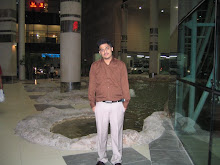Death: Nature of the Beast
The world keeps on moving at an inexorable pace, seemingly indifferent to the fact that some people forever part ways with their loved ones as they embrace the certainty of death. Even the less liked ones gain an iconic status upon death, with any castigation of the dead soul considered an act that borders debauchery. Although death is never a pleasurable experience, it can be said that life retains its value due to the very existence of its anti- thesis. This follows that one can only fully appreciate the value of human life by realizing the great loss that accompanies death. And if religions are to serve as a guide, death is not the end of life, but rather is a stepping stone into eternity. Albus Dumbeldore's observation that death is but the next great adventure rebuts the conventional notion, a notion that assumes that death is the end of the human organism. That we know so little about afterlife adds to the complexity of such an important realm. Science has, till yet, not been able to venture into human afterlife and therefore the best explanations we have rest on religious dogmas. Considering the proclivity of science to endorse rationality over belief, it becomes rather easy to understand why science does not concur with the multifarious theories that seek to shed light on what happens after death. In a rather ironic way, death serves a useful purpose in that it awakens the goodness embedded in all humanity. The very fact that life is short and is merely a transient stage aids us in our collective understanding of the importance of forgiveness and mercy.


0 Comments:
Post a Comment
Subscribe to Post Comments [Atom]
<< Home